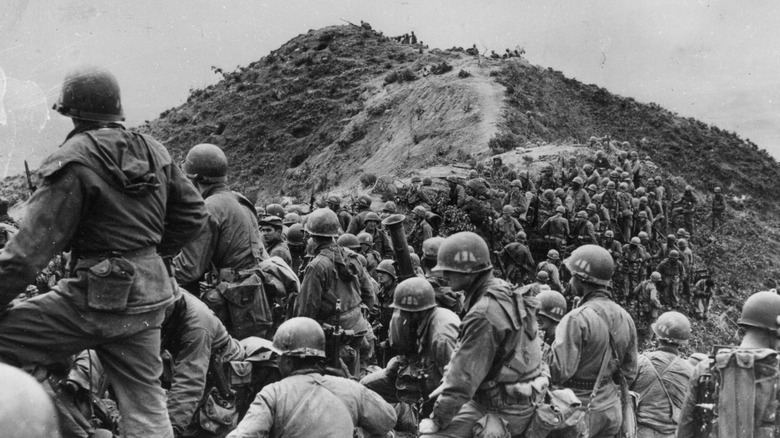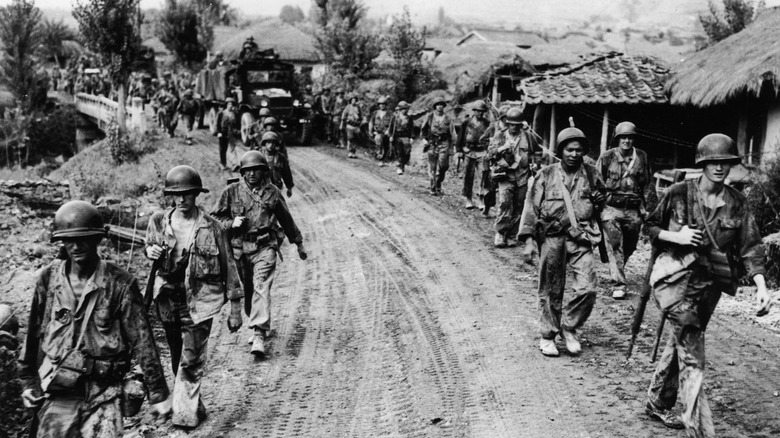The Korean War Was The First Time A US President Did This
Historically speaking, the Korean War is like the middle child who struggles to get attention. Its older 20th-century siblings, the two World Wars, and its hip, rebellious younger brother, the Vietnam War, often get so much more attention that the Korean War has come to be known as the "forgotten war" by many in the United States. Its history on the Korean Peninsula, on the other hand, is not so neglected. According to Military Times, the conflict left millions — primarily civilians — dead on both sides of the 38th parallel, and shaped the political landscape in the region for decades to come. In fact, the Korean War never actually ended, and the effects of the devastating confrontation are still being felt today, whether we acknowledge their source or not.
For example, the NSA has its roots in the conflict. It secured an early victory in the Korean War as the Armed Forces Security Agency, and was later changed to the National Security Agency. According to National Geographic, the Korean War was also the first time a U.S. president sent troops into a battle without the consent of Congress, the only governmental body with the constitutional power to make that decision. Harry Truman set a precedent that would go on to be followed by every single commander-in-chief that began a war afterwards, for as NPR notes, the last time Congress declared war was in World War II. Every war after that has technically been unconstitutional.
U.S. presidents actually have a long history of waging war without Congress
While the last formal declaration of war by Congress was for World War II, and other previous large-scale wars — like the War of 1812 and the Mexican-American War — were approved by Congress, there are actually many pre-Korean War examples of U.S. presidents skipping over that pesky requirement of the Constitution. According to Foreign Policy, there are dozens of examples of early U.S. presidents organizing troops to kill other people all the way back to the country's beginnings. There were disputes with several Native American tribes that were settled with violence, and the undeclared Quasi-War with France from 1798 to 1800. General Andrew Jackson made several military incursions into Spanish Florida, none of which were justified by official declarations of war by Congress. There are many more such examples that date as recently as the mid-19th century.
According to NPR, the U.S. Congress passed the War Powers Resolution in 1973. The law was designed to limit a president's ability to wage war all willy-nilly, as they'd grown accustomed to doing. However, both the executive and legislative branches have gotten pretty comfortable with the idea of the president playing Risk with the U.S. armed forces just about anywhere he wants.

